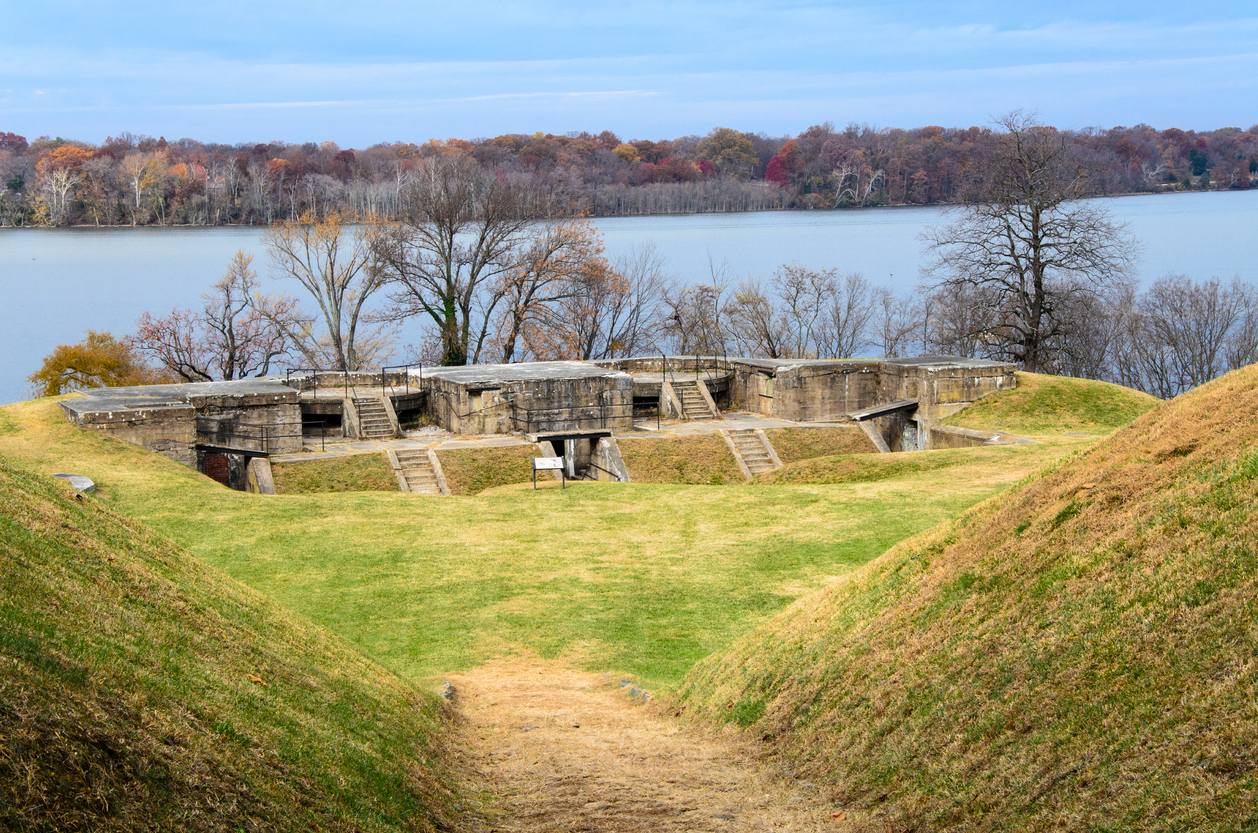Fort Montgomery is the northernmost fortification of the American part of Lake Champlain very closed to the Canadian border. It was the second fort to be built on the same spot for the same purpose. The first one was so unsuccessful that it was named Blunder Fort.
Fort Montgomery, New York, was named after General Richard Montgomery, a Revolutionary War hero who was killed during the 1775 invasion of Canada at Quebec City.
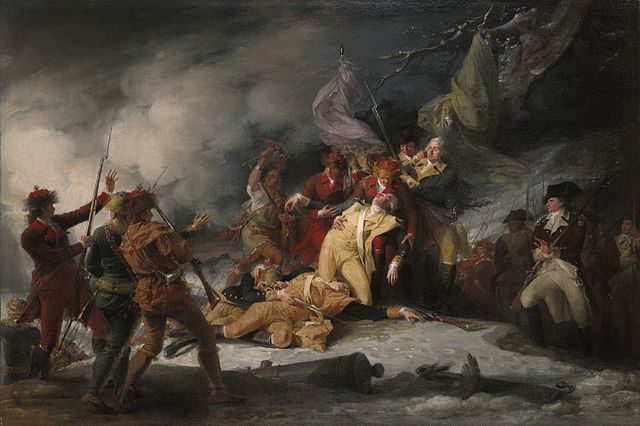
Construction on the island fortification started in 1844 and continued for more than two decades until 1870.
During this period of almost constant construction and fortification, money was not spared. This fortification was considered to be of the utmost importance, and its construction employed the most advanced, cutting edge military technology and materials of the time.
At the peak of construction, around 400 professional stone cutters, masons, and physical workers were employed. Once the basic structure was completed, walls as high as 48 feet (15 m) were built, and the fort was equipped with 125 cannons on three different levels.
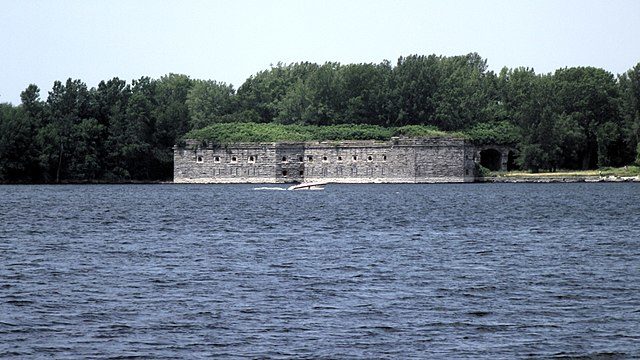
Just behind the fort, between its walls and the shoreline, a massive island was constructed. This man-made island stood higher than the fort itself. Its role was to protect the fort against any attacks made by land and was dubbed “Cover Face.”
This vast island could have mitigated even heavy siege cannon fire. Fort Montgomery was connected to Cover Face by a bridge, and the island was connected to the shoreline by a narrow stone walkway.
Originally, the design of Fort Montgomery required it to be manned by 800 soldiers. However, the need for it to be fully garrisoned never arose. As it turned out, the way the fort was built and its mere appearance were enough to keep the enemy at bay.
Out of the 125 guns that were at the fort’s disposal, the maximum number the fort ever deployed was 74. Fort Montgomery was never equipped with its two biggest guns, two 15-inch Rodman bombers.
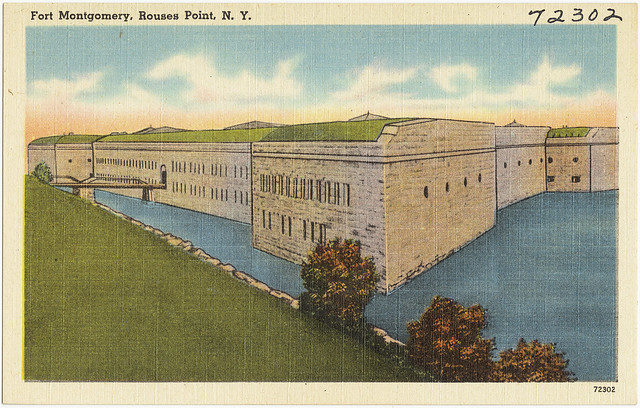
Soon after the Civil War, Fort Montgomery became obsolete due to the introduction of far more powerful great cannons as well as explosive shells. These new weapons could, if needed, reduce the massive fortification into pebbles in a very short time.
As the 19th century vanished over the horizon, so did the old guns from the fort.
In 1900, only 37 guns out of the original 125 were still standing on the fort walls. The next year, that number fell to 20, and by 1909, the last few guns were removed and taken away on a barge. Many of the guns were melted down with the intention of reusing the iron in more modern warfare equipment.
After Fort Montgomery was completely disassembled and all military duties had ceased, there was only one retired soldier that looked after it, patrolling the grounds.
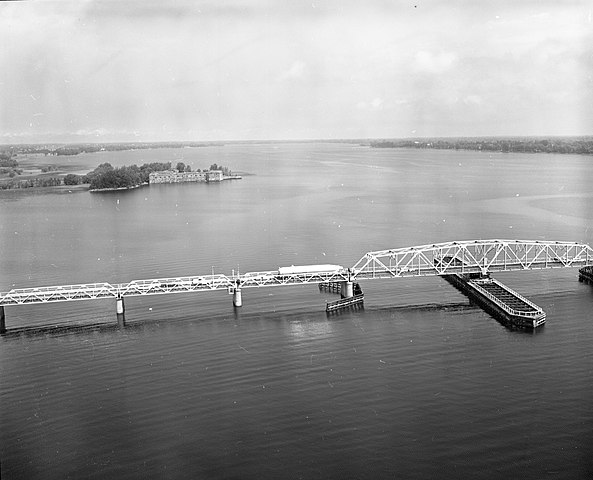
During the long period of disuse, many locals took advantage of the chance to visit the fort and strip it of anything valuable. Everything from windows, doors, stone, and lumber was carted off to be used for other purposes, mostly for building or renovating houses.
In 1926, Fort Montgomery was offered for sale at a public auction held by the United States Government. Since then, the fort has had many different owners. In 1983, it was bought by Victor Podd who moved his company headquarters inside the fortress.
Twenty-three years later, Podd’s heirs tried to sell Fort Montgomery on eBay. The online auction ended with a winning bid of 5,000,310 USD. However, the transaction did not go through, so the fort and its land remained in the ownership of the Podds family.
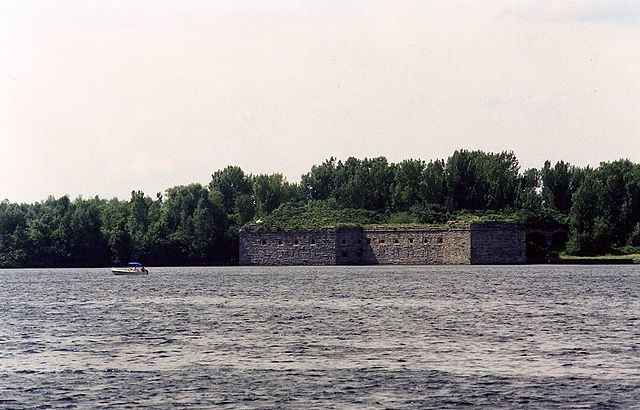
In 2008, the Preservation League of New York State added Fort Montgomery to its list named “Seven to Save.” This was a list of seven important properties that the League planned to renovate, revitalize, and save from decay.
Another Article From Us: Abandoned Sawmill Inside a Ghost Town
However, this list didn’t change the future of Fort Montgomery, and it is still falling apart day by day. The latest news is that the fortress and its estate (being the island it was built on) can be bought for 2,950,000 American dollars.
